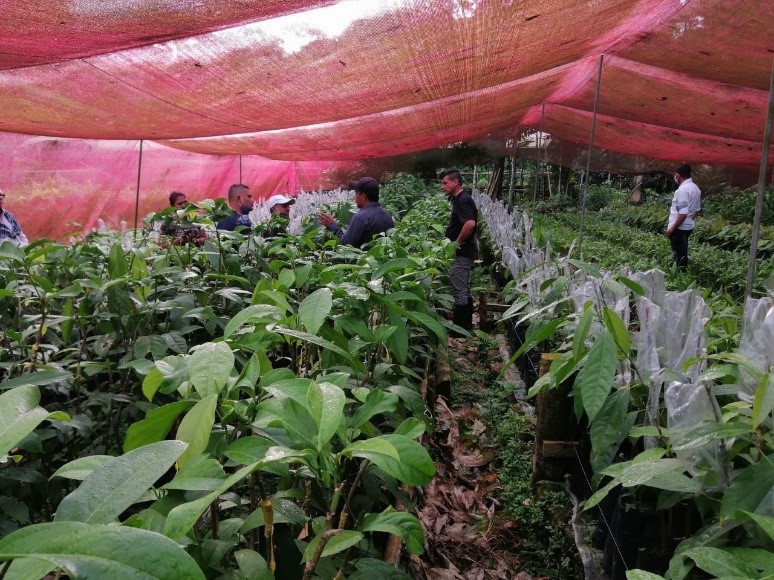The program includes a Rural School for Ecological Restoration, which will provide growers with knowledge and information on ecological restoration and community-based water management.

Bogotá, 10 March 2021 (IICA). The Delegation of the Inter-American Institute for Cooperation on Agriculture (IICA) in Colombia, within the framework of the Knowledge Management for the Adaptation of Family Farming to Climate Change project (INNOVA-AF) will establish a Rural School for Ecological Restoration in the department of Meta, in an attempt to strengthen the capacities of farmers for the design and implementation of profitable, sustainable and inclusive productive projects.
The establishment of the Rural School includes a learning route, which will offer students the opportunity to visit five successful cases of ecological restoration and community-based water management. This network of greenhouses is run by community organizations from the departments of Nariño and Putumayo.
The initiative, “Learning Route: Discovering the Sustainable Territories of the South”, is the spin-off of a process initiated in 2018 by the Small Grants Program of the Global Environment Facility (GEF), which will be implemented in the department of Meta within the framework of the INNOVA AF project, developed by IICA with the financial support of the International Fund for Agricultural Development (IFAD).
The visits will take place between March 8-14, and will feature the participation of various producers from communities in Meta, who will have the chance to visit the Sinchimaki Agroecological Association, the Pimamaki Agroecological Indigenous Association, the Cooperative of the Llanada Mining District, the Galeras Agricultural and Environmental Association and the Administration Board Association of the La Loma-Acualoma Regional Aqueduct.
The learning process will be based on four modules: process intervention model, organizational strengthening and capacity building, partnerships and local management for water governance and good ecological restoration practices.
This experience will be documented, so that other territories covered by the INNOVA AF project can learn about it and replicate it.
Humberto Oliveira, IICA Representative in Colombia, stated: “the learning route involves a process of horizontal knowledge exchange, in which producers are able to strengthen their capacities in community-based nursery production and green business plans, based on the successful experiences of the producers of the department of Nariño. This is part of the knowledge management strategy of our project, which seeks to create an information network”.
These actions are being implemented in partnership with the “Amazonia Sostenible” project of the United Nations Development Program (UNDP) and the Civil Society Reserves Network. Throughout this learning route, various departmental authorities from Meta, Nariño and Putumayo will participate, along with the Colombian Corporation of Agricultural Research (AGROSAVIA), the National Program for the Substitution of Illicit Crops of Meta and the Ministry of Environment and Sustainable Development of Colombia.
ABOUT INNOVA AF
The INNOVA AF project is financed by IFAD and implemented by IICA in eight countries of Latin America and the Caribbean. The program seeks to strengthen the capacities of peasant families that form part of territorial systems of family farming and currently have low resilience to the impacts of climate change in semi-arid territories and mountain systems, to participate actively in rural transformation processes in Latin America and the Caribbean, by implementing and exchanging innovations to adapt to climate change.
More information:
Institutional Communication Division of IICA.
comunicacion.institucional@iica.int











